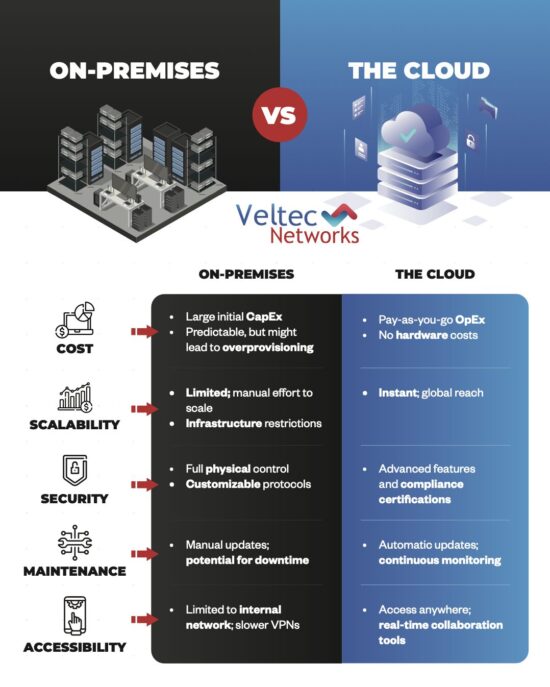California Privacy Rights Act (CPRA): Information and Key Points
The California Privacy Rights Act (CPRA) is a groundbreaking legislation that aims to enhance and protect the privacy of California residents. Building upon the foundation set by the California Consumer Privacy Act (CCPA), the CPRA introduces new requirements and obligations for businesses to ensure the privacy and safety of consumer data. As an organization operating in California, you must understand the implications of this act and take appropriate measures to ensure compliance.
The CPRA expands the scope of its predecessor while retaining the core principles of the CCPA. Some significant changes include the establishment of a new consumer privacy enforcement agency, introducing new consumer rights, and expanding the definition of “personal information.” Keeping up with these evolving regulations is essential to maintain consumer trust and avoid hefty penalties for non-compliance.
Key Takeaways
- The CPRA enhances California’s privacy laws, building on the CCPA and introducing new requirements for businesses
- Understanding and complying with the CPRA is crucial for organizations operating in California to maintain consumer trust and avoid penalties.
- Key provisions in the CPRA include the establishment of an enforcement agency, expanded consumer rights, and a broader definition of “personal information.”
Introducing The California Consumer Privacy Act (CCPA)
The California Consumer Privacy Act (CCPA) is a comprehensive privacy law that grants California residents certain rights over their personal information. As a business owner or operator, it is crucial to understand the parameters of the CCPA to protect yourself and your customers.
CCPA came into effect on January 1, 2020, and has since become a hallmark of privacy legislation in the United States. It aims to provide transparency and control to consumers while holding businesses accountable for collecting, using, and sharing personal information.
Under CCPA, you must inform your customers about the categories of personal information you collect and the purposes for which you use that data. Additionally, you must clearly explain their rights, such as:
- Right to know: Customers have the right to request information about the data you have collected about them, the sources of that data, and the purposes for which it has been used.
- Right to delete: Customers can request the deletion of their personal information, with certain exceptions.
- Right to opt-out: Consumers can opt out of selling their personal information to third parties.
- Right to non-discrimination: You cannot discriminate against customers exercising CCPA rights.
Businesses that fall under the scope of CCPA must adhere to these requirements, regardless of whether they are located within California or outside its borders. Generally, the CCPA applies to companies meeting at least one of the following criteria:
- Over $25 million in annual revenue
- Collects personal information from more than 50,000 consumers
- Generates 50% or more of their revenue from selling consumer information
In summary, the California Consumer Privacy Act (CCPA) is a vital law that businesses must comply with to uphold the privacy rights of California residents. You need to understand the CCPA guidelines and take appropriate measures to ensure compliance in your business operations.
Key Provisions and Changes
The California Privacy Rights Act (CPRA) introduces significant changes and new provisions to strengthen consumer privacy protections. This section will provide information on Security and Cybersecurity Audits, Risk Assessments, and Notices.
Security and Cybersecurity Audits
Under CPRA, businesses must implement reasonable security measures to protect consumers’ and sensitive personal information. This includes conducting regular cybersecurity audits to assess potential vulnerabilities in your systems. Ensure your organization has a robust security plan to meet these requirements and safeguard your users’ data.
Risk Assessments
CPRA introduces mandatory risk assessments for certain types of data processing activities. You must perform these assessments to evaluate the potential risks of your data processing practices, specifically when they involve consumers’ sensitive personal information or pose a significant threat to their privacy rights. As a result, your organization should have a clearly defined process for conducting risk assessments and managing potential risks.
Notices
Transparency is a critical element of the CPRA, and it requires businesses to provide clear, understandable, and accurate notices to consumers about collecting, using, sharing, and disclosing their personal information. Your notices should be readily available and easy to access, ensuring users can make informed decisions about their privacy rights.
Remember to use a confident, knowledgeable, neutral, and clear tone when discussing the CPRA provisions. Complying with these regulations is crucial to protect consumers’ privacy rights and maintain users’ trust in your organization’s data practices.
Rights for Consumers
Right to Delete Personal Information
Under the California Privacy Rights Act (CPRA), you have the right to request businesses to delete the personal information they have collected about you. Companies must comply with your request and direct any service providers to delete your information as well. This ensures greater control over your data and enhances your consumer privacy rights.
Right to Correct Inaccurate Personal Information
CPRA also grants you the right to request businesses to correct any inaccurate personal information they hold about you. Companies must use commercially reasonable efforts to correct your information upon your verified request, ensuring your data remains accurate and up-to-date.
Limit Use of Sensitive Personal Information
The CPRA allows you to limit the use and disclosure of your sensitive personal information by businesses. Sensitive information may include data related to your financial account, precise geolocation, race, religion, etc. You can exercise this right by using the business’s opt-in or opt-out options, safeguarding your consumer privacy.
Opt-Out of Sharing and Cross-Context Behavioral Advertising
You can opt out of businesses’ sharing, selling, or disclosing personal information for cross-context behavioral advertising. This means you can choose not to use your information for targeted advertising across different websites and services, strengthening your consumer rights and control over your online experience.
Enforcement and Compliance
Penalties and Violations
Failure to comply with the California Privacy Rights Act (CPRA) can have severe consequences. Fines can range from $2,500 to $7,500 per intentional violation, depending on the nature of the issue. To avoid these penalties, follow the guidelines set by the CPRA and keep your users’ data privacy a top priority.
Compliance with Proposition 24
To comply with Proposition 24, which strengthened the CPRA, you should take several steps:
- Update privacy policies: Make sure your privacy policy explicitly addresses the new rights provided under the CPRA and properly informs users how their data is used.
- Designate a privacy contact: Assign a specific person or team within your organization to handle privacy-related inquiries and requests.
- Establish a request process: Implement a clear and easily accessible method for users to exercise their rights, such as data access, deletion, and opt-out requests.
- Implement data minimization: Collect and retain only the data necessary for your business and delete any information that is no longer relevant or required.
- Perform risk assessments: Conduct regular assessments to identify potential data privacy and security risks and implement appropriate measures to address those findings.
Role of California Attorney General
The role of the California Attorney General in enforcing the CPRA is critical, as they are responsible for ensuring that businesses are abiding by the required privacy regulations. The Attorney General can issue investigative subpoenas, bring lawsuits, and levy fines for non-compliance.
In addition, the CPRA establishes the California Privacy Protection Agency (CPPA). This new agency serves as an additional enforcement arm, providing guidance and enforcement actions related to the CPRA.
By following these guidelines and understanding the enforcement roles of the California Attorney General and the CPPA, you should be better positioned to prioritize data privacy and stay in compliance with the CPRA.
Business Responsibilities
Service Providers and Third Parties
As a business operating under the California Privacy Rights Act (CPRA), you must understand your responsibilities when dealing with service providers and third parties. Ensure that contracts clearly define the roles and responsibilities of each party. This includes specifying the type, purpose, and duration of data processing. Regularly review these contracts to maintain compliance with the CPRA.
Contractors and Rules for Sharing Personal Information
Contractors also play a significant role in your business’s CPRA compliance. Establish guidelines detailing how personal information will be collected, processed, and shared when engaging with contractors. Ensure the contractors know their duties under the CPRA and safeguard the personal information they handle. You are responsible for any potential breach or non-compliance from a contractor, so exercising appropriate oversight is essential.
- Data Minimization: Limit the sharing and use of personal information to what is strictly necessary for fulfilling the intended purpose.
- Data Security: Implement suitable security measures to protect the personal information handled by your contractors.
- Transparency: Inform customers how their personal information is processed and shared with contractors.
Responsibility for Data Breaches
In case of a data breach, your business’s liability depends on the circumstances and severity of the breach. Under the CPRA, you must notify affected consumers and the California Attorney General’s Office of any data breaches involving personal information. Additionally, take necessary steps to contain the breach and implement corrective measures to prevent future incidents. Maintain a comprehensive incident response plan to guide your response to data breaches. This plan should include the following:
- Breach Detection: Implement tools and procedures to detect data breaches early.
- Internal Communication: Establish clear lines of communication within your organization to ensure swift response and escalation of breaches.
- External Communication: Have a plan for notifying affected consumers and regulators, complying with legal requirements, and engaging with the media (if necessary).
Remember, fulfilling your business responsibilities under the CPRA maintains compliance and safeguards your customers’ trust and privacy. Stay confident and knowledgeable, and always communicate clearly and neutrally.
Privacy Policy and Disclosures
The California Privacy Rights Act (CPRA) brings about new requirements for businesses concerning privacy policies, disclosures, notifications, and the private right of action. As you navigate these obligations, consider the following key points.
When drafting your privacy policy, ensure that it clearly outlines and communicates the categories of personal information you collect, the purpose for collection, and the categories of third parties you disclose it to. Be transparent about your data practices and give users easy access to your updated privacy policy.
Under the CPRA, businesses must disclose any sales or sharing of personal information and the categories of third parties they share it with. Ensure that consumers are notified about these practices and the specific categories of information involved so that they can make informed decisions about their privacy.
The CPRA entitles consumers to various new rights, including the right to correct, know, and opt-out. Your privacy policy should inform consumers about these rights and provide exercise instructions. You should have a system to validate and process such requests promptly and securely.
In addition to having a comprehensive privacy policy, the CPRA requires businesses to notify consumers about the collection, sale, or disclosure of their personal information. This could be done through just-in-time notices and clear opt-out options on your website, ensuring that users know their choices and have control over their data.
IN SOME INSTANCES, the CPRA has expanded the private right of action, allowing consumers to file lawsuits when their non-encoded and non-redacted personal information is subject to unauthorized access, theft, or disclosure due to a business’s failure to maintain reasonable security measures. Be diligent in securing the personal information you collect and maintain to avoid costly penalties and reputation damage.
Remember to keep your policies and practices up-to-date with the evolving requirements under the CPRA to maintain compliance and ensure that your users trust your commitment to their privacy.
Exceptions and Limitations
Employee Exception and Applicant Information
In some circumstances, the California Privacy Rights Act (CPRA) makes exceptions for employee and applicant data. As a California business owner, you might not need to adhere to all the CPRA requirements when dealing with (a) your employees, (b) job applicants, or (c) others that fall within specific employment-related categories under the CPRA. Depending on the specific context, these categories may consist of contractors, agents, or emergency contacts.
However, it is crucial to recognize that this exception does not exclude all labor-related data from CPRA protection. Certain employee rights remain applicable, such as the right to receive notice of the categories of personal information collected and used by the business. Familiarize yourself with the existing CPRA guidance to ensure you fully comply with employee and applicant data treatment and management.
Purpose Limitation
The CPRA implements a purpose limitation principle, which means that you, as a California business, cannot use personal information collected for one purpose to serve a different, unrelated purpose without explicit consent from the consumer. Be aware that, as part of the purpose limitation, the CPRA requires you to specify the purposes for collecting, using, or disclosing personal information, to establish clear boundaries and avoid potential misuse of consumer data.
Nonprofit Organizations
It is important to note that the CPRA does not apply to nonprofit organizations. However, some nonprofits operating jointly or as for-profit entities’ subsidiaries may still fall under CPRA jurisdiction. If you are managing a nonprofit organization, thoroughly examine your organizational structure, partnerships, and activities to ensure you understand the extent to which the CPRA may apply to your organization.
Finally, always stay updated with CPRA regulations and their interpretations to maintain a compliant and efficient business operation, ensuring consumer privacy protections.
Implementation Timeline and Key Dates
The California Privacy Rights Act (CPRA) was enacted to enhance privacy rights and consumer protection for residents of California. As you navigate the implementation process, you must know the timeline and critical dates associated with the CPRA.
The 12-month lookback period began on January 1, 2023, which means that any personal information collected by a business during this timeframe falls under the jurisdiction of the CPRA. Ensure that your business complies with these regulations to avoid potential penalties.
If your business operates in California, and its annual gross revenues exceed $25 million, you fall under the CPRA jurisdiction. The location of your headquarters is immaterial, as the law applies to any business collecting the personal information of California residents.
For consumers, the CPRA provides the right to opt out of data sharing and allows the designation of an authorized agent to manage their privacy preferences on their behalf. Make sure to have processes to respect and honor these opt-out requests and authorized agent designations at your business.
The CPRA requirements apply to each entity individually regarding jointly operated businesses or partnerships. Thus, ensure that each party adheres to the privacy standards outlined in the legislation.
You may need to reference the State of California’s official resources and updates throughout the implementation process for additional guidance and clarification. While the City of San Francisco may have local privacy regulations, confirming your compliance with CPRA is essential as it is a statewide law.
In summary, by paying close attention to the key dates, the opt-out provision, and authorized agent rules and maintaining a clear understanding of the CPRA requirements, your business can navigate the complexities of the implementation timeline and meet the necessary compliance standards.
Frequently Asked Questions
When does CPRA go into effect?
CPRA will be fully enforced starting July 1, 2023. However, the law takes effect on January 1, 2023, with a look-back provision for data collected on or after January 1, 2022.
What are the critical differences between CCPA and CPRA?
While both CCPA and CPRA aim to protect consumer data privacy, there are significant differences between the two:
- CPRA broadens the definition of “sensitive personal information” to include data such as Social Security numbers, driver’s license numbers, precise geolocation, and biometric information.
- CPRA establishes a new government agency, the California Privacy Protection Agency (CPPA), responsible for enforcing compliance.
- CPRA introduces new consumer rights, such as the right to limit the usage of sensitive data and the right to correct inaccurate personal information.
- CPRA has higher fines for violations involving minors’ data, up to $7,500 per intentional violation.
How can a business ensure CPRA compliance?
To ensure CPRA compliance, you should:
- Update your privacy policy to include details about CPRA requirements and rights.
- Implement processes to handle consumer requests, such as data access, deletion, correction, and limiting usage of sensitive data.
- Ensure data security measures are in place to protect sensitive personal information from unauthorized access and data breaches.
- Regularly review and audit third-party vendors to ensure they comply with CPRA requirements.
What are the penalties for non-compliance with CPRA?
Non-compliance with CPRA can result in fines ranging from $2,500 for each unintentional violation to $7,500 for each intentional violation or violation involving minors’ data. Businesses will have a 30-day window to correct violations upon notification before fines are imposed.
Are any organizations exempt from CPRA?
Although CPRA applies to a wide range of organizations, certain entities are exempt:
- Businesses with less than $25 million in annual revenue.
- Companies that don’t buy, sell, or share personal information of 100,000 or more California residents or households.
- Nonprofit organizations and government agencies.
What new consumer rights does the CPRA introduce?
CPRA introduces several new consumer rights, including:
- The right to limit the use and disclosure of sensitive personal information.
- The right to correct inaccurate personal information held by businesses.
- The right to opt out of automated decision-making technology or “profiling” (activities that may have legal or similarly significant effects on consumers, e.g., lending decisions or job applications).
These rights build upon the existing CCPA rights to access, delete, and opt out of the sale of personal information.
How Veltec Networks Can Ensure Your Compliance
Veltec Networks understands the importance of complying with the California Privacy Rights Act (CPRA). To assist you in achieving compliance, our team of experts offers a comprehensive approach tailored to your business requirements.
Firstly, Veltec Networks thoroughly assesses your company’s data collection, storage, and sharing practices. This involves reviewing your privacy policy and data inventory and ensuring proper data access controls are in place. This foundational step creates a clear understanding of your current compliance status.
Next, we identify gaps in your compliance and develop actionable solutions to address them. As part of our services, we can assist in implementing cookie tracking and management systems that adhere to CPRA guidelines, ensuring that your customers have the proper control over their personal information.
Another essential aspect of CPRA compliance is a robust and transparent privacy policy. Your dedicated Veltec Networks consultant will help you tailor your privacy policy to ensure it aligns with CPRA requirements, making it clear to your customers how their data is being used, stored, and shared.
In addition to these targeted actions, Veltec Networks stays updated on any changes to the CPRA and related regulations. This proactive approach ensures that your business remains compliant as the regulatory landscape evolves, safeguarding you from potential fines and penalties.
Rest assured that with Veltec Networks as your partner, your path to CPRA compliance is straightforward and efficient. By leveraging our expertise, you will be well-positioned to meet the privacy requirements your customers and regulators expect.






